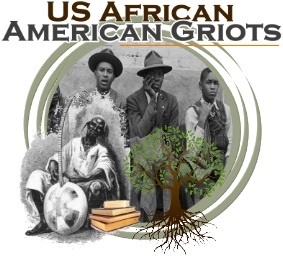 |
Telling Our Story One Page at a Time |
 |
|
|
Obituary - The Rev. John H. Jackson Oregonian, The (Portland, OR) February 17, 1994 Color photo by BENJAMIN BRINK/The Oregonian. Edition: FOURTH Section: LOCAL STORIES Page: D01
Civil Rights Leader lived on the front lines
Summary: The Rev. John H. Jackson, dead at 81, encouraged patience and consistency in the battle to gain social justice for all
During the tumult of the civil rights struggle and school busing boycotts, perhaps one man stood above all others in Portland as a beacon for all.
The Rev. John H. Jackson, who died of a stroke Monday in a local care center, tried to shine a light on what he saw as the true path to social justice and liberation: patient, yet firm and consistent, coalition-building.
``When folks wanted to tear things down, to tear things up, he was the voice of reason,'' said Richard Brown, current co-chairman of the Black United Front, an activist group Jackson helped found.
But while he called for balance with a wisdom born of a lifetime of struggle against inequality, the 81-year-old retired pastor of Mount Olivet Baptist Church didn't shy away from the battle.
``He was always on the front lines,'' Brown said, whether it be for education, jobs and housing in the black community or against violence, such as the Vietnam War. ``He will surely be missed,'' the activist said.
A native of Pittsburgh, Jackson came to Portland in 1964 as pastor of Mt. Olivet after earning awards for his work in race relations and community service in Connecticut, North Carolina and Pennsylvania.
He retired 23 years later with a record of pioneering achievements in Portland and in Oregon.
``I never met anybody in my life like him who could combine the pastoral sentimentality with the hard, raw political facts of a community trying to get out of the hole,'' said Herb Cawthorne, former head of the Urban League of Portland.
Cawthorne, now a San Diego, Calif., television commentator, said he was an angry, 30-year-old black man who thought he could do it all himself when he was appointed to the Portland School District board in 1979.
``He called me in once and he said in that old, raspy voice, `Boy, you're smart and you're book-learned, but you don't know the ways of the street and you can't do it by yourself. So come on home,' '' Cawthorne remembered.
During the late 1970s, Portland was in the midst of a heated fight over school desegregation and busing.
The Black United Front, with Jackson and Ron Herndon as co-chairmen, called for a student boycott of Portland Public Schools. Nearly three-fourths of Portland's 7,000 black students stayed home on Malcolm X's birthday.
This created the momentum that brought former school superintendent Matthew Prophet, a black, to Portland. It led to the building of Harriet Tubman Middle School and multicultural curriculum changes.
``Harriet Tubman Middle School, that should be named John Jackson Middle School,'' Cawthorne said.
Racial prejudice and struggle colored Jackson's own schooling.
As a grade school student, he lost a history award given him by the Daughters of the American Revolution when it was learned he was black. He graduated from the University of Pittsburgh in 1940 and later from the Union Theological Seminary in New York, but was denied entrance to a doctoral program at Pitt because of his color.
So he spent his life trying to break down educational and employment barriers for fellow blacks.
``I remember him linking arms and leading some of the first civil rights marches in downtown Portland,'' said the Rev. Rodney Page, executive director of Ecumenical Ministries of Oregon.
At that time, right after Jackson came to Portland, the city's white majority ``felt civil rights was a problem of the South,'' not the Northwest, Page said. ``We got catcalls and all kinds of epithets thrown at us,'' he said.
Jackson was arrested for trespassing as late as December 1984, at the age of 72, when he marched in an anti-apartheid protest in front of Portland's now-closed South African honorary consulate.
The minister also forced commitment out of others.
``One year I was considering leaving Portland and going to Africa to live and work,'' said state Rep. Avel Gordly, D-Portland, then program director of the American Friends Service Committee. ``He didn't say don't go, but he told me all the reasons I should stay in the community and continue to make a contribution.''
In 1966 Jackson won the American Baptist Home Societies' Edward Henry Rhoades Award for distinguished service to urban churches. He received another national honor in 1977 from the National Conference of Christians and Jews.
Local honors included the Aubrey R. Watzek Award for distinguished service to Portland civil rights in 1968, a public service citation from the Public Housing Authority of Portland in 1975, a certificate of appreciation from the Portland chapter of the National Association for the Advancement of Colored People in 1980, a Drum Major to Justice Award from The Skanner newspaper in 1985 and the Metropolitan Human Relations Commission's Russell A. Peyton Award for contributions to human service in 1986.
Jackson's funeral will be Friday at 1 p.m. in Vancouver Avenue Baptist Church. Viewing will be from 9 a.m. to 9 p.m. Thursday at Caldwell's Colonial Chapel. Family members will be there from 7 p.m. to 9 p.m.
"He's truly a great man, somebody in our midst who truly achieved greatness,'' said Gordly. His contributions ``go far beyond what his presence meant in the black community. We should all claim his greatness, and we should all look to his life for inspiration.''
Submitted by L. Kemp |
``When folks wanted to tear things down, to tear things up, he was the voice of reason,''